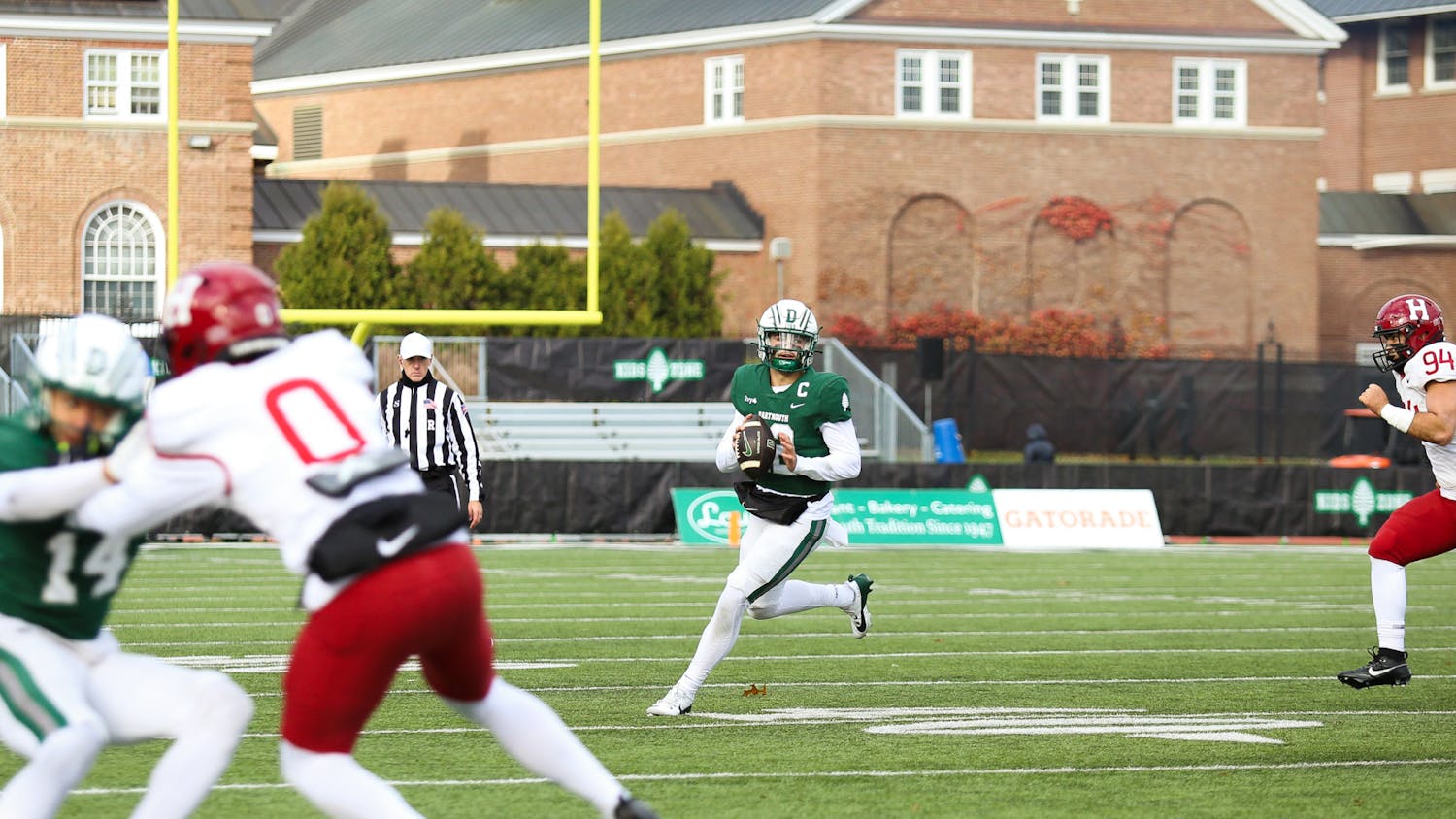“I think people should try to take advantages of courses … that are kind of project-focused and hands-on” Michael Harteveldt ’19, a government and Chinese major, said.
Harteveldt has taken Chinese 62.01, “Chinese Calligraphy,” which was centered on completing projects and experimental practice in calligraphy.
“It definitely was a very unique class,” he said. “The final projects and the midterm projects were all … working up to a specific character that you were perfecting. It was a very cool way of assessment.”
He stated that one of his favorite parts of the class was the hands-on instruction that Asian and Middle Eastern languages and literatures professor Wen Xing provided, which eventually helped Harteveldt place parts of Chinese culture into context during his language study abroad program in Beijing.
Another class that incorporates unique teaching methods is Economics 70, “Immersion Experience in Applied Economics and Policy,” which Amanda Sload ’19 previously took..
“The idea was for us to study the transformation of Poland from under communism to a market economy,” she said. “We did some general work on transition economies and different kinds of economies. [However], we focused more on Poland itself.”
Halfway through the term, students in Econ 70 split into groups of four and started research projects about the successes and challenges of the economic transition.
“To be able to then go to Poland and talk to real people about these issues and to see where they were happening really made things real for us,” she said. “I think that our conclusions changed dramatically because seeing the context just really helps you understand.”
Sload noted the possibility of hearing from conflicting narratives from the people her group talked to.
“It didn’t present necessarily a single picture, because obviously people are different,” Sload said. “But it really helped us understand the complexity of what we’ve been studying and helped us see more of the nuance.”
Vibhor Khanna ’19 is another student who has taken Econ 70. Unlike Sload’s class, Khanna’s class focused on China’s economy. Khanna’s class traveled to the Szechuan province of China, where students talked to officials and learned about economics in a communist regime. In addition, he talked to people who had lived through China’s Cultural Revolution during the mid- to late-twentieth century and learned more about their experiences.
“I learned things … that I definitely wouldn’t have learned by reading a textbook,” Khanna said.
Environmental Studies 11, “Humans and Nature in America,” which is currently being taught by professor Terry Osborne, aims to establish a greater understanding of humans’ relationship with nature and help students understand their personal relationships with nature.
Students evaluate the themes related to humans and nature in America in texts like the journals of Meriwether Lewis and William Clark and novels by award-winning author Toni Morrison. They then apply these concepts into their own experiences in nature during class walks in campus’ own College Park. There, students are encouraged to contemplate on their experiences in the thematic context. Previous ENVS 11 classes have required students to write a report on the now-defunct proposal to build residential halls in College Park with these themes and their personal experiences in mind.
Jessica Kittelberger ’18, who is currently taking ENVS 11, has taken many classes that incorporate experiential learning.
“For me, I had never gone to the College Park area so there was a spatial aspect as well as getting to know a place on a perceptual level,” she said. “I was able to get to know to this place better than any textbook could offer.”
For Kittelberger, the connection to nature and the deeper levels of analysis and self-reflection she gained from this course was something that was only attained through complete immersion with the material.
Computer Science 22, “3D Digital Modeling” is yet another class that requires full engagement with the assignments.
“[Computer Science professor Lorie Loeb] gives us tutorials on how to use certain tools and what they would be good for, [but] it’s up to us to decide what tools to use for our own models and how to use them to create our objects,” Aritrika Malakar ’21 said. “The class is very hands-on because we mostly work in the lab, modeling … the class is innovative because we get to design rooms, objects and characters to model and then we have to figure out effective ways to model them using a software program.”
Malakar said that by being pushed to figure out concepts for herself, she is able to better understand the concepts.
The students in these four courses tended to agree that providing a kinesthetic experience improves their understanding of their respective subjects. Not only can it add further dimensions to their education, but it also allows students to internalize and apply their learnings to the world. As Hanlon said, this innovation “will prove an essential part of a liberal arts education.”
“It is one thing to read an article or listen to a lecture,” Kittelberger said. “But actually going to a place and seeing a process, event or actively [learning] in the given environment does so much more cognitively and emotionally.”



